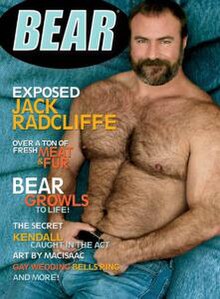
A gay village, also known as a gayborhood, is a geographical area with generally recognized boundaries that is inhabited or frequented by many lesbian, gay, bisexual, transgender, and queer (LGBT) people. Gay villages often contain a number of gay-oriented establishments, such as gay bars and pubs, nightclubs, bathhouses, restaurants, boutiques, and bookstores.
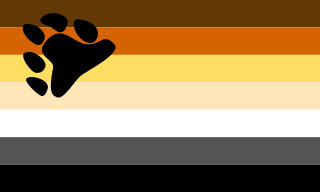
In gay culture, bear is a term for men who are large, hairy, or both.

Leather subculture denotes practices and styles of dress organized around sexual activities that involve leather garments, such as leather jackets, vests, boots, chaps, harnesses, or other items. Wearing leather garments is one way that participants in this culture self-consciously distinguish themselves from mainstream sexual cultures. Many participants associate leather culture with BDSM practices and its many subcultures. For some, black leather clothing is an erotic fashion that expresses heightened masculinity or the appropriation of sexual power; love of motorcycles, motorcycle clubs and independence; and/or engagement in sexual kink or leather fetishism.

A chub is an overweight or obese gay man who identifies as being part of the chubby culture. Although there is some overlap between chubs and bears, chubs have their own distinct subculture and community. There are bars, organizations and social events specifically catering to this subculture, which allows members of the community to socialize with each other and develop social networks.
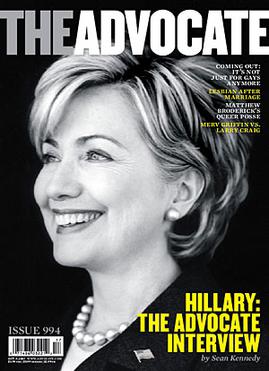
The Advocate is an American LGBT magazine, printed bi-monthly and available by subscription. The Advocate brand also includes a website. Both magazine and website have an editorial focus on news, politics, opinion, and arts and entertainment of interest to lesbians, gay men, bisexuals and transgender (LGBT) people. The magazine, established in 1967, is the oldest and largest LGBT publication in the United States and the only surviving one of its kind that was founded before the 1969 Stonewall riots in Manhattan, an uprising that was a major milestone in the LGBT rights movement. On June 9, 2022, Pride Media was acquired by Equal Entertainment LLC.
LPI Media was the largest gay and lesbian publisher in the United States. The company targeted LGBT communities and published such magazines, books, and websites, with its magazines alone having more than 8.2 million copies distributed each year. The Advocate and Out magazines were the two largest circulation LGBT magazines in the United States, each with corresponding websites, Advocate.com and OUT.com.
Castro clone is LGBT slang for a homosexual man who appears in dress and style as an idealized working-class man. The term and image grew out of the heavily gay-populated Castro neighborhood in San Francisco during the late 1970s, when the modern LGBT rights movement, sparked by the 1969 Stonewall riots in New York City and the Summer of Love, gave rise to an urban community. The first recorded usage of the term is from Arthur Evans's "Red Queen Broadsides", a series of posters he wheatpasted around the Castro at the time. The look was most common from roughly the mid-1970s to around the mid-1980s. The Castro style regained popularity in the first decade of the 21st century, particularly among LGBT hipsters.
The Bay Area Reporter is a free weekly LGBT newspaper serving the LGBT communities in the San Francisco Bay Area. It is one of the largest-circulation LGBT newspapers in the United States, and the country's oldest continuously published newspaper of its kind.

OutNow Newsmagazine, also known as ON and ON Magazine was a monthly lifestyle magazine that targeted lesbian, gay, bisexual, and transgender (LGBT) members of the gay community in the San Francisco Bay Area. OutNow had been published since 1992 from its headquarters in San Jose, California, in the Silicon Valley.
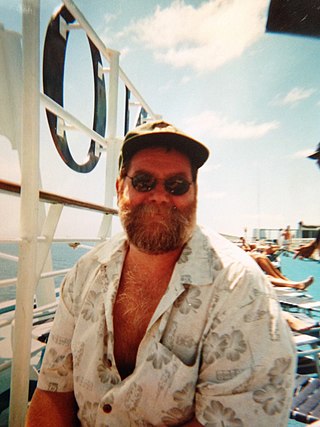
Edmund Christian Nelson was an American photographer and co-founder of Bear Magazine in the 1980s, was the photographic pioneer in the gay-oriented erotic photography of mature men with hairy bodies and facial hair. His work directly led to the legitimizing of the bear community as a social group.
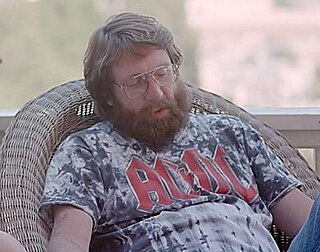
Rick Redewill was the founder of the Lone Star Saloon, the gay bar which is credited as helping give birth to the Bear Community in San Francisco. He is buried in Georgetown, CA.
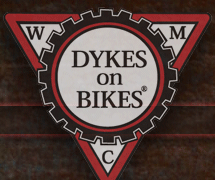
Dykes on Bikes (DOB) is a chartered lesbian motorcycle club with 22 chapters, numerous affiliations, and 501(c)(3) nonprofit status. They are known for their participation in gay pride events such as Pride parades, and significant LGBTQ+ events like the international Gay Games.

John Joseph "Jack" Fritscher is an American author, university professor, historian, and social activist known internationally for his fiction, erotica, and nonfiction analyses of pop culture and gay male culture. An activist prior to the Stonewall riots, he was an out and founding member of the Journal of Popular Culture. Fritscher became highly influential as editor of Drummer magazine.

The lesbian, gay, bisexual and transgender (LGBT) community in San Francisco is one of the largest and most prominent LGBT communities in the United States, and is one of the most important in the history of American LGBT rights and activism alongside New York City. The city itself has been described as "the original 'gay-friendly city'". LGBT culture is also active within companies that are based in Silicon Valley, which is located within the southern San Francisco Bay Area.
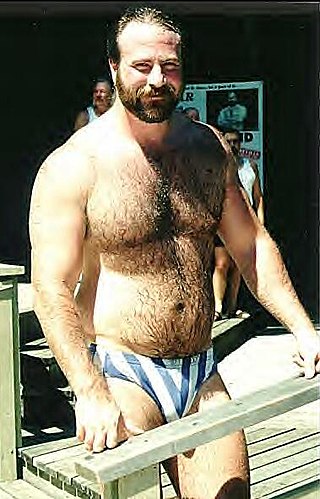
Jack Radcliffe is an American pornographic film actor. Radcliffe is considered a pornographic icon, and in particular, an icon of gay bear subculture and its physical aesthetics.
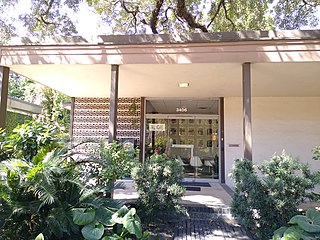
OutSmart Magazine, or simply OutSmart, is a monthly publication serving Houston's LGBT community since 1994. Founded by Greg Jeu, the magazine's outreach has exceeded 200,000 and is distributed at over 350 locations in Houston and Galveston, as well as in Austin, Corpus Christi, Dallas, El Paso, and San Antonio. Upon its creation, it was the only local magazine to highlight the society, politics, and culture surrounding the LGBT community in Houston, rather than serving as an entertainment guide; most other publications at that time tended to feature sexually-explicit content and advertisements. OutSmart is also certified and verified by the National Gay and Lesbian Chamber of Commerce as an LGBT Business Enterprise and is audited by Verified Audit Circulation.
Maud's was a lesbian bar at 937 Cole Street in San Francisco's Haight-Ashbury District which opened in 1966 and closed in 1989. At the time of its closing, which was captured in the film, Last Call at Maud's, it was claimed to be the oldest lesbian bar in the United States. Its history, documented in the film and other media, spanned almost a quarter-century of LGBT events.
Peg's Place was a San Francisco lesbian bar (1950s–1988) and the site of an assault in 1979 by off-duty members of the San Francisco vice squad, an event which drew national attention to other incidents of anti-gay violence and police harassment of the LGBT community and helped propel an unsuccessful citywide proposition to ban the city's vice squad altogether. Historians have written about the incident when describing the tension that existed between the police and the LGBT community during the late 1970s.

Butch is a lesbian who exhibits a masculine identity or gender presentation.
